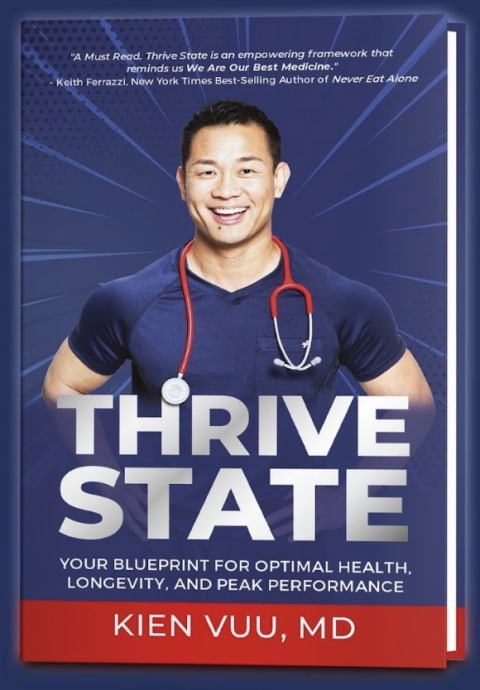Advertisement
An MD On The Two Types Of Happiness (And Which One Is Healthier)


When happiness is experienced in the here and now, it is a subjective human emotion within a current human experience.
For example, you play competitive soccer, and your team wins its match; you (and your teammates) are happy in the current moment. You don't win every match, and when you lose, you feel something other than happiness. Overall, though, you feel happy because you have friends to play with (relationships and community), you are physically fit (movement), and you maintain balance in your life (stress and emotional control). Happiness in the broader sense of time becomes a subjective evaluation of life satisfaction or quality of life.
The keyword is subjective. Happiness depends on innumerable factors and is unique to each individual. What makes me happy may not make you happy, and vice versa. But how do you define happiness? The concepts of happiness and well-being have been debated since the days of ancient Greek philosophers who argued that the secret to a better and more harmonious life and thus, a better, more harmonious society, relied upon both virtuous character and eudaimonia.
OK, so what the heck is eudaimonia, Dr. V?
Eudaimonia is a Greek word that commonly translates as "happiness" yet more likely approximates "human flourishing or prosperity" and "blessedness."
Even from the ancient philosophical perspective, eudaimonia definitions differ. According to Aristotle, virtue and exercising virtue are central to eudaimonia, but also there is consideration given to external goods such as health, beauty, and wealth. Conversely (and for comparison), the Stoics did not believe external goods were necessary; for them, virtue was sufficient and necessary.
Aristotle believed that human beings gain eudaimonia when they develop their highest human functioning—rational thought and reason—and complement these with rational actions. That's my super-condensed interpretation of Aristotle's meaning of eudaimonia. If you're interested in delving into the ancient origins of happiness and well-being, Aristotle's Nicomachean Ethics and Eudemian Ethics are a good place to begin.
In my mind and for me personally, eudaimonia would be something like I could have all the medical knowledge (reason), medical ability, and empathy for patients in the world, but if I don't put those qualities into action (work) by helping people, then I could not achieve true happiness.
Put another way, when I fully participate in intellectually stimulating and fulfilling work for the benefit of others, then I have found my purpose, my happiness, and my success as a human being.
Eudaimonia, sometimes referred to as eudaimonic happiness, has a yin/yang counterpart, or an "evil twin" depending on how you look at it, called hedonia or hedonic happiness. Hedonia is the sense of happiness induced by momentary pleasure or satisfaction and immediate self-gratification.
In my case, for example, hedonia could be the accolades of a colleague, a pay raise, or a new car (purchased because of the pay raise), all of which bring a sense of short-term happiness. No doubt that life brings a mix of hedonic and eudaimonic happiness, but what helps us achieve our purpose in life is the lasting happiness resulting from long-term goals and actions.
Thus, the ideal human quest to achieve well-being is accomplished when we strive for meaning and a noble purpose and go beyond self-gratification.
Eudamonia in the 21st century
Since the days of Aristotle, there has been a resurgence of interest in the concept of happiness, not by philosophers but by psychologists seeking to understand the effects on health.
Most notably, Barbara L. Frederickson, Ph.D., a professor of psychology in the College of Arts and Sciences at the University of North Carolina at Chapel Hill, has put forth the ideas that (1) not all happiness is created equal; (2) that the human body recognizes this and responds differently; (3) eudaimonic happiness may provide health benefits at the cellular level; and (4) hedonic happiness may produce negative health effects at the cellular level.
Wow, that's big! It means that two events seemingly equal in terms of eliciting a sense of happiness could, in fact, be experienced differently at the cellular level.
The epigenetic root of happiness
Frederickson's team collaborated with the team of Steven W. Cole, Ph.D., a professor of medicine, psychiatry, and behavioral sciences at the University of California at Los Angeles to examine how eudaimonic and hedonic well-being (happiness) influenced gene expression within human immune cells.
The premise was that when immune cells are under extended periods of stress or adversity, there is a shift in the normal gene expression; the fight-or-flight response activates something called the conserved transcriptional response to adversity (CTRA), which upregulates pro-inflammatory genes and downregulates genes involved in defending against viruses.
Fifty-three genes were observed with respect to CTRA, including inflammation (19 genes), interferon response (31 genes), and antibody synthesis (3 genes). Although the participants as a whole reported feelings of well-being, those with high levels of hedonic well-being experienced a small increase in stress-related CTRA, and those with high levels of eudaimonic well-being experienced significant decreases in stress-related CTRA.
Experiencing a greater amount of hedonic well-being is like consuming “empty calories.”
Fredrickson suggested that experiencing a greater amount of hedonic well-being is like consuming "empty calories." While simple pleasures may provide short-term gratification, they may cause long-term negative health effects. In other words, if you eat a whole pint of ice cream, you may feel good temporarily, but eating a pint every day will likely cause you to gain weight and could potentially lead to other poor health outcomes down the road. Cole states that eudaimonic well-being elicited a downregulation of the pro-inflammatory genes' expression and an upregulation of the pro-immunity genes' expression. Put simply, having a strong sense of purpose will lower inflammation and increase immunity.
As such, try to make eudaimonic happiness a priority in your life—your cells will reward you with good health, better performance, and greater health span. And with better health, performance, and health span, you'll have the power to continue sharing your talents and gifts with others who need them...and need you.
Excerpted from Thrive State, 2nd Edition: Your Blueprint for Optimal Health, Longevity, and Peak Performance by Kien Vuu, M.D., with permission from the publisher.
